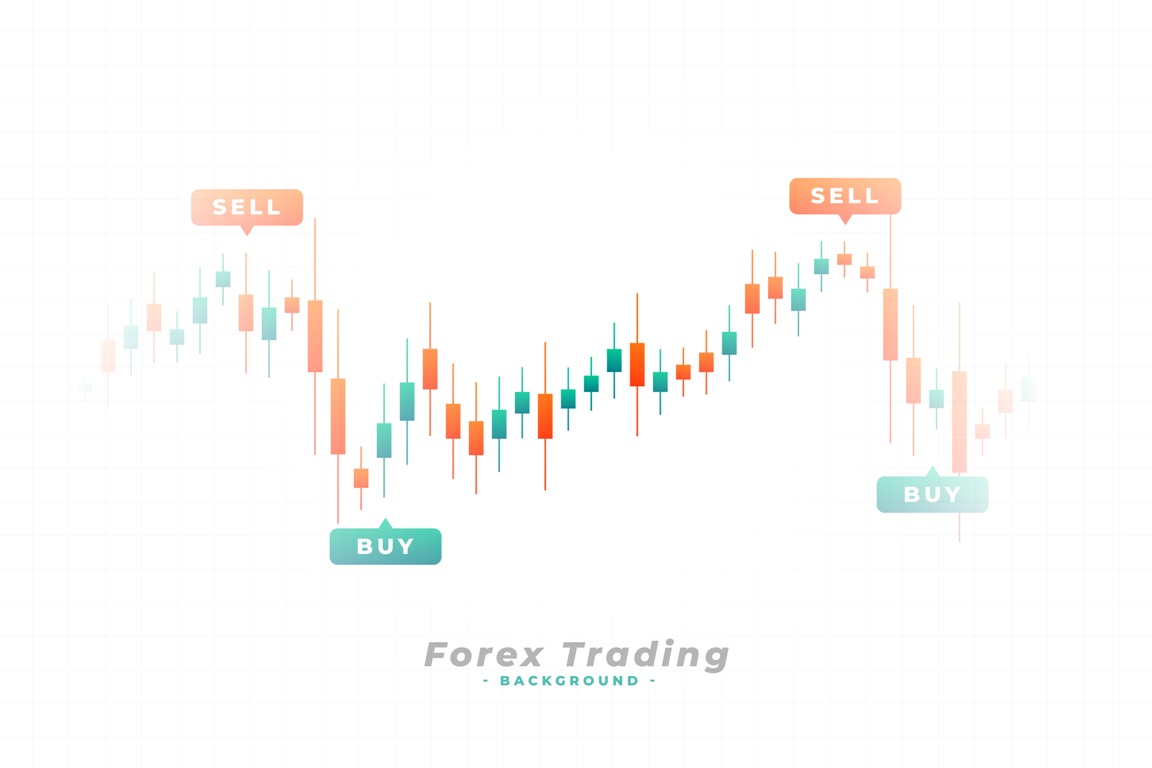
economic world forex trading background
As any seasoned entrepreneur knows, risk management is at the core of running a successful business. In the dynamic and volatile world of forex trading, it plays an even more critical role.
Just as a businessperson continually assesses and takes steps to mitigate risks, forex traders need robust strategies to ensure their capital isn’t eroded by unfavourable market movements.
Table of Contents
An important element in the forex trading landscape is the role of forex brokers. These entities provide platforms for individuals and institutions to trade in the forex market.
But their role extends beyond just enabling transactions: forex brokers often provide tools and services that can play a crucial part in a trader’s risk mitigation strategy.
From offering stop-loss orders to providing leverage and even allowing diversification across different markets, brokers are key facilitators in helping traders manage their risk.
That’s why it’s crucial to find the best forex brokers on the market, in order to get the best help with risk mitigation preparation and knowledge.
In order to fully prepare risk mitigation policies, it is important to understand what we actually mean by risk mitigation. In forex trading, risk mitigation refers to processes and techniques engaged by traders to minimize potential losses and protect their investments.
These can for example be employed to handle and control currency market fluctuations, or other trading risk factors.
By implementing these tactics, traders hope to optimize their overall profitability and make more well-informed and sturdy long-term trading decisions.
However, in order to learn about and realize the risk mitigation tactics, it is first crucial to understand what risks are inherent in the forex market.
Forex trading comes with its set of uncertainties, including the risk of sudden changes in the market, regulations, or unexpected events.
The forex market itself is known for its volatility, driven by factors such as economic indicators, geopolitical events, and changes in market sentiment, making it one of the most challenging markets in the world.
Much like the business world, managing risk in forex trading begins with understanding the nature of these risks. Traders must stay abreast of economic news, keep a close eye on trends, and monitor signals for potential market disruptions.
A stop-loss order in forex trading can be compared to having insurance in the business world. Businesses take out insurance policies to protect themselves from unforeseen calamities.
Similarly, a stop-loss order is a tool used by forex traders to limit potential losses if the market moves against their position.
When you place a stop loss order, you’re instructing your broker to close your position if the exchange rate reaches a specific level. This strategy ensures that your losses will not exceed a pre-determined amount, thus providing a safety net for your trading capital.
Leverage in forex trading is akin to taking on debt in a business. It enables traders to control larger positions with a smaller amount of capital. However, while leverage can amplify profits, it can also magnify losses.
Businesses often strive to maintain a manageable debt-to-equity ratio to mitigate financial risk. Similarly, traders should carefully manage their leverage to ensure that potential losses don’t exceed their initial investment.
Diversification, a popular risk mitigation strategy in business, is equally applicable in forex trading. A business may diversify its product portfolio or markets to spread risk.
In forex trading, diversification could involve trading in different currency pairs, timeframes, or trading styles.
Diversification helps to offset losses in one area with gains in another. However, it’s crucial not to over-diversify as it can dilute potential profits and become harder to manage.
Just like businesses follow a disciplined approach to operations, project management, and strategy, the same level of discipline is crucial in forex trading.
This can be achieved by having a well-structured trading plan, using proven trading strategies, and sticking to them. Emotional decision-making or deviating from the plan based on short-term market fluctuations can increase risk.
Businesses often assess the risk-to-reward ratio of a new project or investment. The same applies to forex trading. It’s essential to evaluate the potential downside of a trade compared to the potential upside.
A common practice is to aim for trades with a risk-to-reward ratio of 1:3 or higher, meaning the potential profit is at least three times the potential loss.
This approach ensures that even if some trades result in losses, the profitable trades will more than cover them.
Forex trading, much like running a business, involves balancing the potential for high returns with the risk of significant losses.
By adopting effective risk mitigation strategies, forex traders can navigate the market with confidence, making informed decisions to safeguard their investments while maximising their potential profits.
In this way, traders can also create a healthy relationship with trading and maintain it as a fun investment opportunity.
A: Understanding and acknowledging that not every trade will be profitable is crucial. It’s essential to have a robust risk management strategy, including stop-loss orders, limited leverage, diversification, and a disciplined approach to trading.
A: While higher leverage can offer the potential for higher profits, it also increases the risk of significant losses. It’s important to manage leverage effectively to ensure that potential losses don’t exceed your initial investment.
A: It’s impossible to completely eliminate risk in forex trading, just as it’s impossible to completely eliminate risk in business. However, through effective risk management strategies, it’s possible to mitigate risk to a considerable extent.
Why Proper Export Packing Matters Exporting fragile and valuable items requires careful planning. Incorrect packing…
Pallet racking plays a central role in how a warehouse functions day to day. The…
Owning commercial property represents a significant financial and operational commitment. Whether the asset is a…
Exploring island beaches, diving locations, or the energetic city life are all amazing experiences when…
Growth in the mortgage sector requires more than increased case volume. Advisers must balance commercial…
Acoustics are crucial in any space, whether it's an office, classroom, or home workspace. Poor…